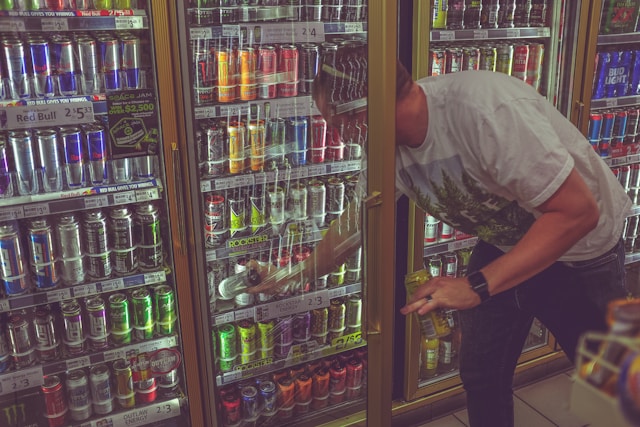


Energy drinks contain high levels of toxic chemical ingredients that have scientifically proven effects on the heart, glands, hormones, and nervous system.
Nutrition experts have long warned of the dangers of energy drinks and the risks associated with excessive consumption—especially since, in recent years, many teenagers have begun consuming them in excess. However, a recent study goes even further, linking one of the ingredients in energy drinks to the development of leukemia.
So, what is the harmful substance in energy drinks that may contribute to the development of leukemia?
Taurine, a common component of energy drinks, is an amino acid naturally found in protein sources like fish and meat. It helps regulate salt and mineral balance in the body. According to the study published in Nature, taurine enhances the formation of leukemia cells. The study showed that in mice, cancer cells feed on taurine, which may significantly accelerate the progression of the disease in mice with normal immune systems. As a result, taurine could promote the development of leukemia, as cancer cells consume it to stimulate the breakdown of glucose—an energy source that fuels cancer cell growth.
For this reason, experts emphasize that warning against energy drinks due to this common ingredient is essential.
What Are the Dangers of Energy Drinks?
Nutrition expert Dr. Niveen Bashir warns against energy drinks for multiple reasons. First and foremost, these beverages are manufactured and contain a high concentration of chemical substances. The main concern is that teenagers may consume them excessively and without supervision. Other groups may also overconsume them, which increases the associated risks.
According to Bashir, these drinks contain toxic substances. One of their primary ingredients is caffeine, which in large doses increases heart rate and can cause various side effects. Energy drinks also contain large amounts of sugar, which raises the body’s blood sugar levels and may play a significant role in the development of cancer cells—especially since sugar levels in energy drinks often exceed taurine levels.
Still, Bashir notes that the effect of taurine on cancer growth is still under investigation, and research continues to either confirm or refute this link. Taurine is an amino acid that helps the body produce energy. She adds that energy drinks also contain ephedrine, a stimulant that enhances metabolic activity and can assist with weight loss.
Another ingredient, carnitine, is also an amino acid that muscles use to burn energy more efficiently. In addition, energy drinks include a mix of other toxic chemicals that individuals are exposed to upon consumption.
It’s important to note that the risks of these ingredients are not limited to potentially increasing cancer risk. They also negatively affect the nervous system, potentially causing lasting issues when consumed regularly. Furthermore, they can disrupt the endocrine system and hormonal balance, contribute to obesity due to high caloric content, and expose individuals of any age to high levels of stimulants.
While studies continue to explore the connection between taurine and the development of leukemia, experts have already confirmed other side effects related to the heart, nervous system, glands, and hormones.
Based on all these factors, Dr. Bashir warns against consuming energy drinks, which she considers highly toxic to every cell in the body and responsible for numerous harmful health effects.
Source: Al Nahar Newspaper